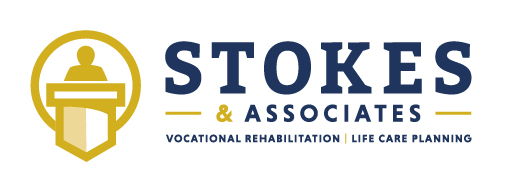Determining the Loss of Earning Capacity in Pediatric or Young Adult Cases
This is a review of an article published in the Journal of Forensic Vocational Analysis, Vol. 18, No. 1, Summer 2018, by the American Board of Vocational Experts.
In this article, Terry Leslie, M.Ed., CRC, LPC, ABVE/D, a vocational and life care planning consultant, proposes a framework to guide vocational experts in determining loss of earning capacity in pediatric and young adult cases. Leslie suggests that the focus be on the “Sphere of Influence” instead of family or parents only, as these traditional relationships appear not to be as prevalent as they may have been in the past. The “Sphere of Influence” covers three general areas, including genetics, socio‑economic status, and the characteristics of the child themselves.
There are several medical conditions that may have genetic causes and need to be considered in determining the pre‑morbid level of functioning of a child compared to their post-morbid level of functioning. Such conditions include autism spectrum disorder; attention-deficit/hyperactivity disorder (ADHD); oppositional defiant disorder (ODD), specific learning disorders such as reading disability; and traits such as Tourette’s disorder, bipolar disorder, and cystic fibrosis as examples.
Regarding socio-economic status, individuals who have an influence on the child may include parents, grandparents, siblings, etc. Characteristics such as educational attainment, academic achievement, school absences, grade level functioning, as well as earnings records or criminal records can be helpful to the analysis. The author quotes the American Psychological Association Education and Socio-economic Status Factsheet which states that socio-economic status is often measured as a combination of education, income, and occupation. Leslie adds that a strong positive association between one’s school attainment and that of one’s parents has been consistently documented in numerous studies.
Regarding characteristics of the child/young adult that can affect the analysis may include work-life expectancy, education/academic skills development and attainment and test/evaluation scores; medical/psychological opinions and limitations; interests; residency; criminal or drug record; and skills developed by the child. Additionally, any medical or other conditions which are not related to the litigation and their effect on wage-earning capacity must be considered.
Assessing the loss of earning capacity requires special care. At Stokes & Associates, we refer to published, generally accepted methods similar to those outlined by Leslie to guide our assessments of individuals who for whatever reason have poorly defined work history or vocational trajectories.
We offer complimentary consultations concerning "hypothetical matters."
To strategize with one of our vocational experts or certified life care planners at Stokes & Associates please call David Barrett at 504-454-5009, visit our website, www.stokes-associates.com or email dbarrett@stokes-associates.com.
Larry S. Stokes, Ph.D.
Aaron Wolfson, Ph.D.
Lacy Sapp, MHS, CRC, LPC, LRC, CLCP
Todd Capielano, M.Ed., LRC, CRC, LPC, CLCP
